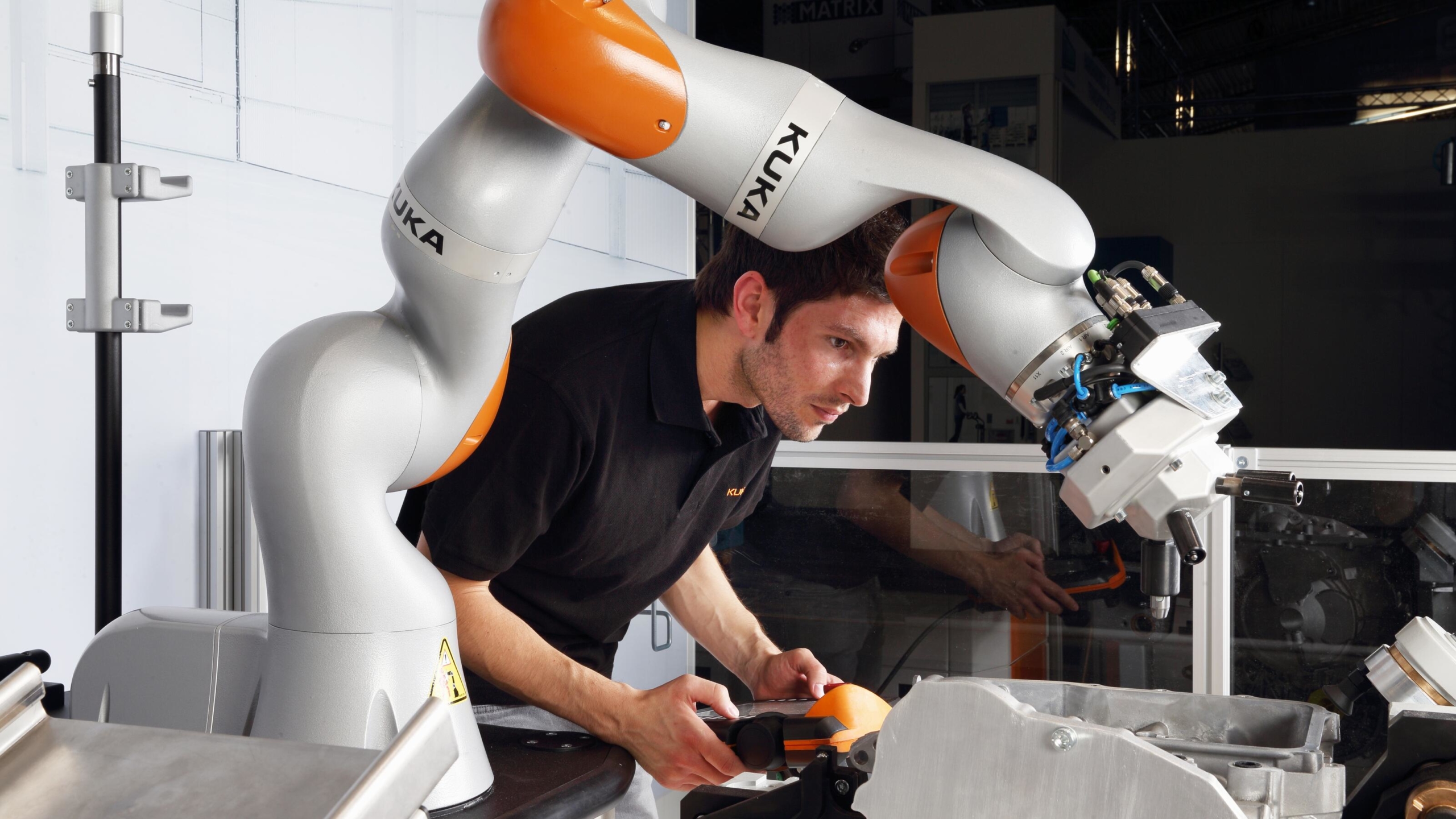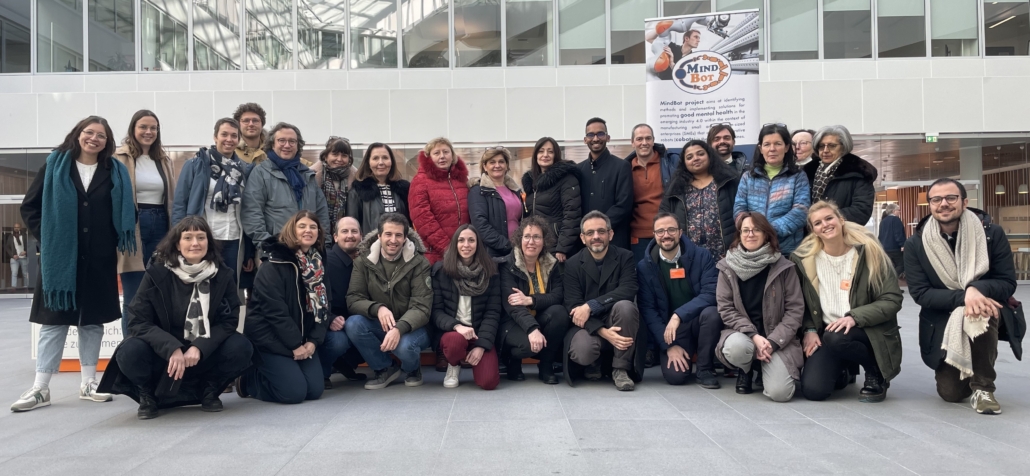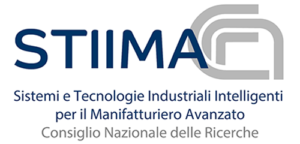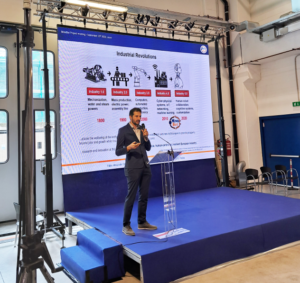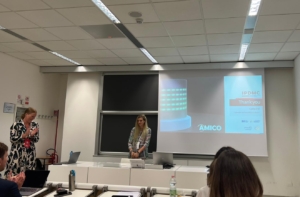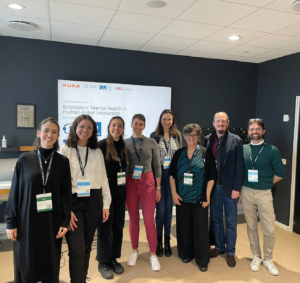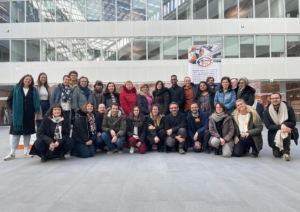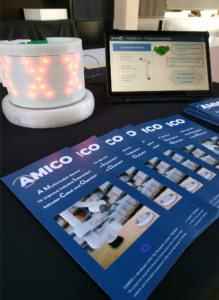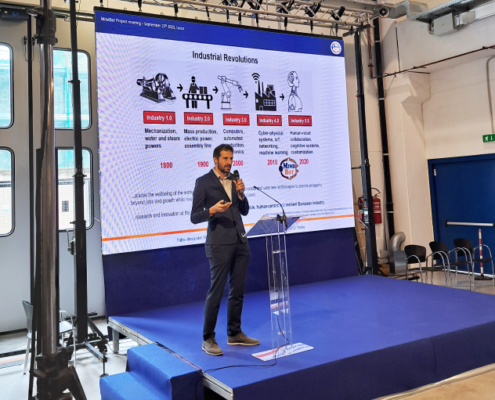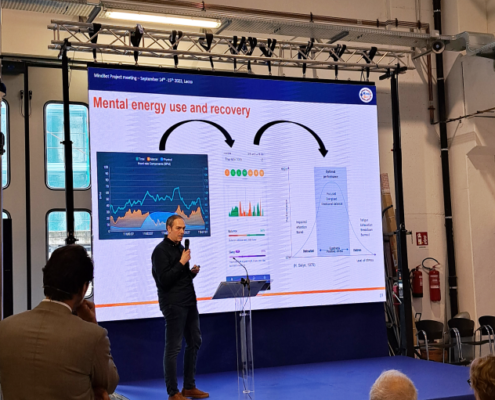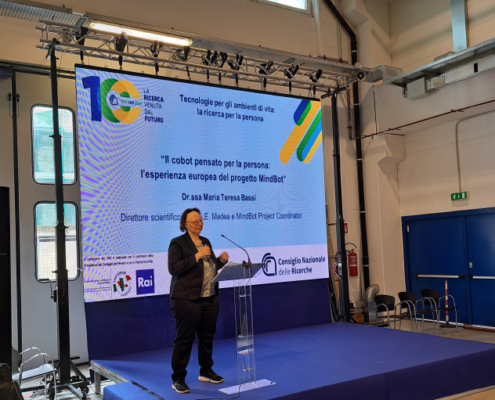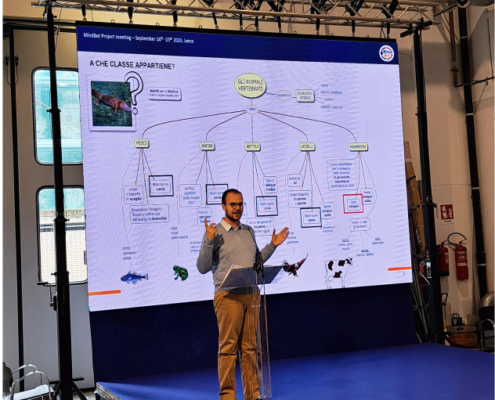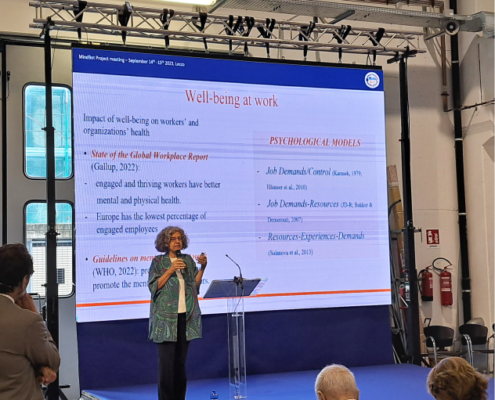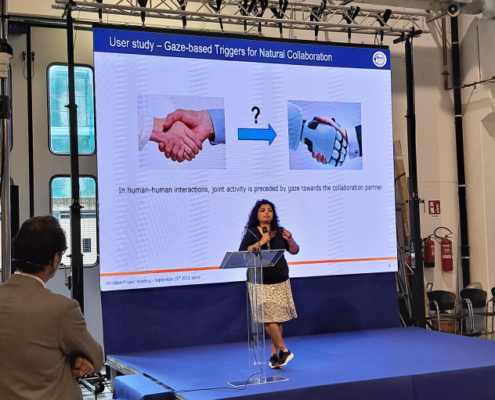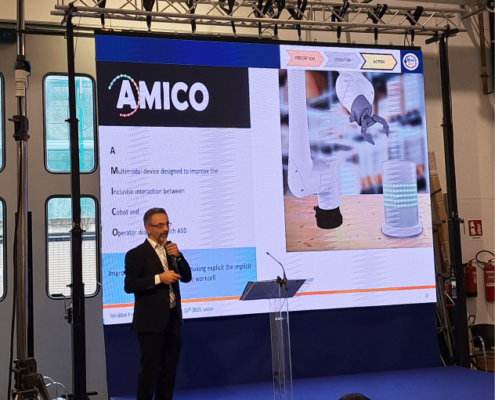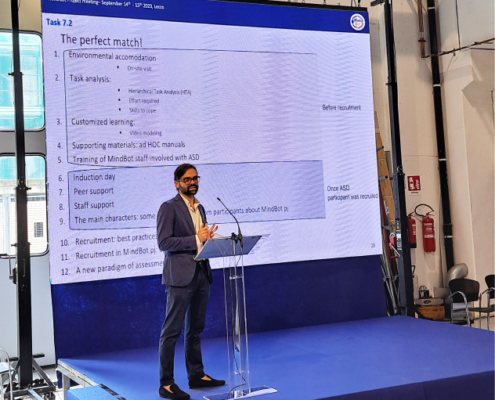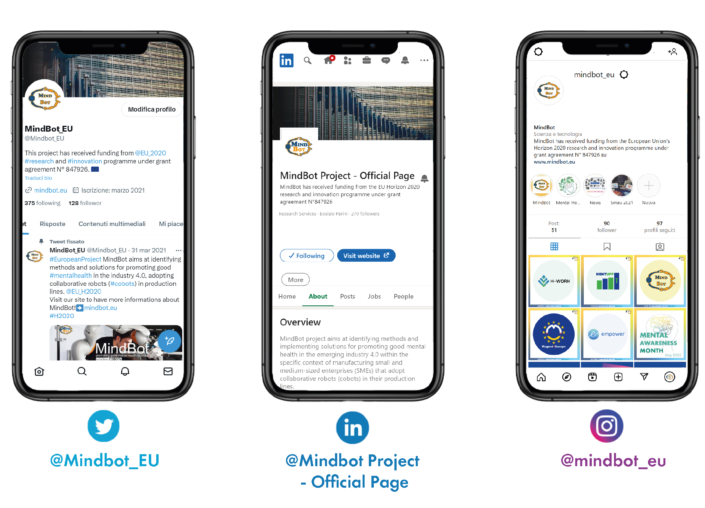Among them, cobots are robots intended to interact directly and safely with humans in a shared workplace. Cobots enable automation within manufacturing in such a way that human workers aren’t replaced; rather, they continue to play an important role in the production operations, being supported by the cobot.
MindBot aims to support the worker’s motivation
MindBot’s idea is to support the worker’s motivation and engagement within the cobot-worker interaction in a flexible and personalized way, in order to facilitate active and positive job experiences, thereby preventing negative experiences of anxiety or boredom and apathy.
The potential of work as an opportunity for skill implementation and goal pursuit is especially evident when dealing with populations who live in disadvantaged conditions, such as persons who experience mental health disorders.
Project team
MindBot’s multidisciplinary team consists of engineers, clinicians, psychiatrists, psychologists, designers, social workers, occupational therapists, advocacy workers and researchers. All the professionals involved provide their expertise to get work done, to reach project objectives and ensure its success.

